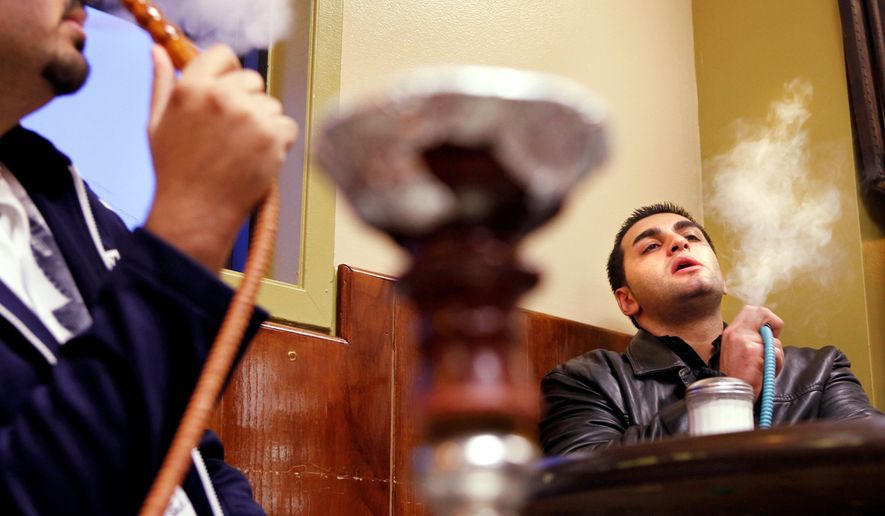Saudi Arabia has permanently forbidden the use of tobacco products in Islam’s holiest cities, resulting in significant changes for many Muslims. The ban famously includes cigarettes and the Middle Eastern hookah (also known as shisha or water pipe). For many, the hookah is a staple of Arab culture, with significant presence in Middle Eastern and Western communities.
The ban had a particular effect on this year’s Hajj crowds, as the Hajj ceremonies take place in Makkah (alternatively Mecca), home to the Kaaba, and Medina, the burial place of Islam’s Prophet Muhammad. Between 2 million and 3 million Muslims perform the Hajj annually.
In response to the ban, the World Health Organization (WHO) delivered its World No Tobacco Day Award to Saudi Arabia and issued a report, “WHO smoke-free city case study: Mecca and Medina, Saudi Arabia.” The report states “[Saudi Arabia] has adopted a religiously inspired and radical policy approach to strengthening tobacco control.”
According to WHO, the Saudi tobacco initiative includes:
Banning tobacco smoking around the two holy mosques in Mecca and Medina.
Banning tobacco sales within city limits and beyond city limits, including prohibiting the sales in all food stores and in the neighborhood of mosques and schools.
Prohibiting waterpipe smoking in cafes and restaurants within residential areas and near mosques, schools and wedding halls.
Extensive campaigns to raise awareness about the hazards of smoking and the tobacco control policy in the cities among the public and city visitors.
The report goes on to discuss Saudi religious rulings or “fatwas” related to smoking: “The fatwas stated that smoking in any form, and by whichever means, causes extensive health and financial damage to smokers. Consequently, and on this evidence alone, smoking would be forbidden to Muslims and they should not smoke.”
Countering the ban, a type of tobacco black market has appeared in the holy cities, where purchasers are often forced to pay a 300 percent markup on cigarettes and hookah products.
Saudi Arabia officially considers itself to be adherents of the Sunni sect of Islam, but are widely acknowledged followers of Salafism. Despite the differences in religious belief, Shiites also preach about the dangers of tobacco products.
Iraq’s leading Shia Muslim authority, Grand Ayatollah Sistani, says on his webpage, “Smoking becomes haram [forbidden] for the beginner if it entails serious harm, even at the future, regardless of whether that serious harm is certain, most probable, or just probable so much so that sensible people would demand caution … If continuing to smoke will cause serious harm to the compulsive smoker — as explained above — it is necessary for him to refrain from it.”
The ayatollah goes a step further in saying, “By considering the serious harm of narcotic drugs, it is forbidden to use them due to the great damage they cause. Based on obligatory precaution, it is compulsory to refrain from using them in any way [even if there is no harm], except for medical purposes and the like; in the latter case, it can be used only to the extent of need.”
Iran’s Supreme Leader, also a Shiite, Grand Ayatollah Khamanei, holds a similar viewpoint about smoking, saying, “Should it spell a noticeable harmful effect to one’s well-being, it is not permissible to smoke, buy or sell it.”
Shiite ayatollahs typically refrain from making even basic statements about science, acknowledging that it is not their field of expertise. Accordingly, their “fatwas” (rulings) will always have “if it’s harmful” language, requiring their adherents to rely on secular medical opinions.
Muslim leaders have launched a year-round effort to reduce smoking. In this year’s Ramadan, the Islamic holy month of fasting, it was announced that “[m]ore than 100 health officials and a large contingent of scouts have taken positions around the Grand Mosque in Makkah to raise awareness about the negative effects of smoking,” said Dr. Sameer Al-Sabban, executive director of the Anti-Smoking Campaign in Mecca to Asia News.




Please read our comment policy before commenting.